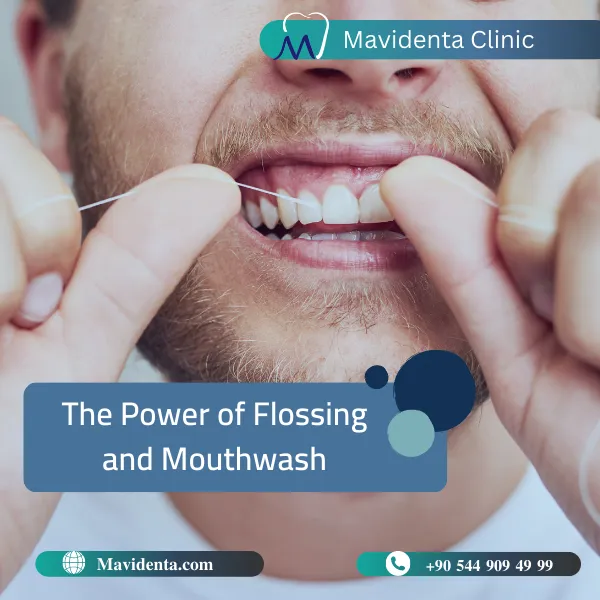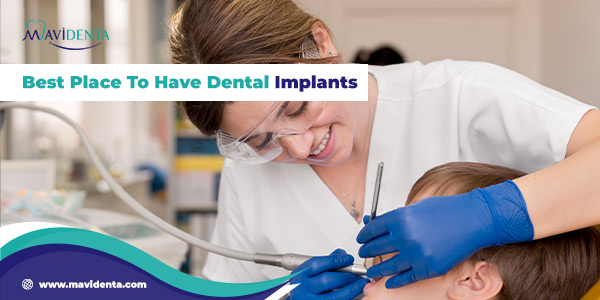Are you looking for ways to achieve a healthy smile without relying on harmful chemicals and artificial ingredients? Maintaining healthy teeth and gums is crucial for overall health, and natural oral care can be vital. Natural ingredients and methods, such as oil pulling and natural mouthwash, can help promote good oral health and provide additional health benefits. Natural oral care is essential, as it can reduce exposure to harmful chemicals and promote a brighter, healthier smile. So, let’s explore how to get healthy teeth and gums naturally and why natural oral care is essential for optimal oral health.
How to get healthy teeth and gums naturally
There are several natural ways to maintain healthy teeth and gums. Here are some tips:
Brush and floss regularly
Brush your teeth twice a day for at least two minutes each time, and floss once a day to remove food particles and plaque buildup.
Use a natural toothpaste
Look for toothpaste made with natural ingredients like coconut oil, or neem. Avoid toothpaste with fluoride and other harmful chemicals.
Eat a healthy diet
A balanced diet with plenty of fruits, vegetables, and whole grains can help keep your teeth and gums healthy. Avoid sugary and acidic foods that can damage your teeth.
Drink plenty of water
Water helps to rinse away food particles and bacteria that can lead to tooth decay and gum disease.
Use natural mouthwash
Try using a natural mouthwash made with tea tree oil, peppermint oil, or clove oil to kill bacteria and freshen your breath.
Chew sugar-free gum
Chewing sugar-free gum after meals can help stimulate saliva production, which neutralizes acids and helps to prevent tooth decay.
Practice stress-reduction techniques
Stress can weaken your immune system and make you more susceptible to gum disease. Try to reduce stress by practicing meditation, yoga, or deep breathing exercises.
Remember, regular dental check-ups with a dentist are also important to maintain healthy teeth and gums.
Nourishing Your Teeth and Gums with a Healthy Diet
A healthy diet can help maintain healthy teeth and gums naturally. A balanced diet that includes the right nutrients can help prevent tooth decay and gum disease, while also promoting strong teeth and healthy gums. Here are some tips on how to get healthy teeth and gums naturally by nourishing your body with a healthy diet.
Foods for Strong Teeth
Eating foods that are rich in calcium and phosphorus can help in keeping your teeth strong. Calcium is essential for strong and healthy teeth, and phosphorus works with calcium to keep your teeth strong. Foods such as milk, cheese, yogurt, leafy greens, meat, eggs, fish, and nuts are rich in calcium and phosphorus.
Nutrients That Support Gum Health
Vitamin C is essential for healthy gums. It can prevent gum disease by strengthening the connective tissues in your gums and reducing inflammation. Foods such as citrus fruits, kiwi, berries, and peppers are rich in vitamin C.
Vitamin D helps your body absorb calcium, which is essential for strong teeth. Foods such as fatty fish, egg yolks, and mushrooms are good sources of vitamin D.
Limiting Sugary and Acidic Foods
Sugary and acidic foods can damage your teeth. Bacteria in your mouth feed on sugar and produce acid that can erode your tooth enamel over time. Limit consumption of sugary drinks, candy, and acidic foods like citrus fruits, tomatoes, and vinegar.
Water can help wash away food particles and bacteria that cause tooth decay and gum disease. Drinking water also helps neutralize the acid in your mouth that can erode your tooth enamel.
Incorporating these healthy foods into your diet can help you naturally get healthy teeth and gums. Remember to brush, floss regularly, and visit your dentist for regular check-ups and cleanings. A healthy diet and good oral hygiene can prevent dental problems and maintain good oral health for a lifetime.
Herbal Remedies for Optimal Oral Health
Maintaining good oral health is crucial for overall well-being. While regular brushing, flossing, and dental check-ups are essential, some herbal remedies can complement your oral hygiene routine. Here are a few natural remedies for optimal oral health and they can also help you on how to get healthy teeth and gums naturally:
Aloe Vera Gel for Gum Health
Aloe vera gel has been used for centuries for its medicinal properties, including its potential benefits for gum health. It contains anti-inflammatory and antimicrobial properties that can reduce gum inflammation and fight off harmful bacteria in the mouth.
To utilize aloe vera gel for gum health, apply a small amount to the gums and gently massage it. Rinse thoroughly after a few minutes. However, it’s important to note that aloe vera should not be swallowed, so ensure proper rinsing.
Tea Tree Oil for Oral Hygiene
Tea tree oil possesses antimicrobial properties that can combat bacteria responsible for gum disease and bad breath. Dilute a few drops of tea tree oil in water and use it as a mouthwash after brushing your teeth. Be cautious not to swallow the mixture. Avoid using undiluted tea tree oil directly on the gums, as it may cause irritation in some individuals.
Clove Oil for Toothache Relief
Clove oil has been used for its analgesic properties and can temporarily relieve toothaches. It contains eugenol, a compound with natural numbing and anti-inflammatory effects. Apply a small amount of clove oil to a cotton ball and gently dab it on the affected area for pain relief.
However, it’s important to note that clove oil is a temporary solution, and it’s crucial to visit a dentist to address the underlying cause of the toothache.
Herbal remedies such as aloe vera gel for gum health, Tea Tree Oil for oral hygiene, and Clove Oil for toothache relief can be effective in promoting optimal oral health. However, it is essential to use these remedies in moderation and to consult with a healthcare professional before using them, especially if you have any underlying medical conditions or are taking medication.
Periodontal Treatment in Turkey
Natural Remedies for Common Dental Issues
Maintaining good oral hygiene is essential for keeping your teeth and gums healthy, but despite your best efforts, common dental issues can still arise. While dental treatments can address these issues, natural remedies can also be effective in treating them. Natural remedies use natural ingredients and can be less expensive and have fewer side effects than traditional dental treatments. We will discuss here three natural remedies for common dental issues as follows:
Treating Bad Breath Naturally
Bad breath, also known as halitosis, can be caused by poor dental hygiene, dry mouth, and certain foods. To treat bad breath naturally, it is important to maintain good oral hygiene. Brushing your teeth twice a day, flossing daily, and using a tongue scraper can help remove bacteria from your mouth and prevent bad breath.
Additionally, drinking plenty of water and chewing on fresh herbs such as mint, parsley, or cilantro can help freshen breath naturally.
Addressing Tooth Sensitivity
Tooth sensitivity occurs when the tooth enamel gets worn down, exposing the sensitive inner layers of the tooth. This can cause discomfort and pain, especially when consuming hot, cold, or sweet foods and drinks. To address tooth sensitivity naturally, it is important to avoid consuming acidic and sugary foods and drinks.
Additionally, using a soft-bristled toothbrush and brushing gently can help prevent further damage to the tooth enamel and help you on how to get healthy teeth and gums naturally. Applying a small amount of clove oil, a natural analgesic, to the affected tooth can also help relieve tooth sensitivity.
Managing Gum Inflammation and Bleeding
Gum inflammation and bleeding can be caused by poor dental hygiene, gum disease, and certain medications. To manage gum inflammation and bleeding naturally, it is important to maintain good oral hygiene by brushing and flossing regularly.
Additionally, using a natural mouthwash made of warm salt water or aloe vera gel can help soothe inflamed gums. Massaging the gums with a mixture of coconut oil and a few drops of tea tree oil can also reduce inflammation and promote healing.
Therefore, the answer of how to get healthy teeth and gums naturally is easy. By incorporating the above-mentioned natural remedies into your oral care routine, you can maintain good oral health and prevent common dental issues before becoming more serious problems.
Brushing Techniques for Healthy Teeth and Gums
Proper brushing technique is a fundamental thing on how to get healthy teeth and gums naturally. Choosing the right toothbrush and toothpaste, using the correct brushing technique, and brushing for the right amount of time are all important factors in achieving optimal oral health.
In this article, we will discuss brushing techniques for healthy teeth and gums as follows:
Choosing the Right Toothbrush and Toothpaste
Choosing the right toothbrush and toothpaste is the first step to proper brushing. Toothbrushes come in different sizes and shapes, but it is important to choose a toothbrush with soft bristles that can easily reach all areas of your mouth. Electric toothbrushes can be more effective in removing plaque than manual toothbrushes.
When choosing toothpaste, look for one that contains fluoride, which helps to strengthen tooth enamel and prevent cavities.
Proper Brushing Technique
Proper brushing technique involves more than just scrubbing your teeth. It also helps you on how to get healthy teeth and gums naturally. Therefore, the American Dental Association recommends the following technique:
- Hold your toothbrush at a 45-degree angle to your teeth, pointing towards the gum line.
- Gently brush back and forth in short strokes, using circular motions.
- Brush the outer surfaces, inner surfaces, and chewing surfaces of all teeth.
- Tilt the brush vertically and use gentle up-and-down strokes to clean the inside surfaces of the front teeth.
- Brush your tongue to remove bacteria and freshen breath.
It is important to avoid brushing too hard, as this can damage your tooth enamel and gums.
Frequency and Duration of Brushing
Brushing your teeth twice a day for two minutes each time is recommended for optimal oral health. Brushing too often or for too long can damage your tooth enamel and gums. It is also important to replace your toothbrush every three to four months or sooner if the bristles become frayed.
The Power of Flossing and Mouthwash

While brushing is an essential part of oral care, flossing and using mouthwash can provide additional benefits for optimal oral health.
Benefits of Flossing
Flossing is an essential part of oral care, as it helps to remove plaque and food particles from between teeth and along the gumline as well as helps you on how to get healthy teeth and gums naturally. Flossing can also prevent gum disease and tooth decay by removing bacteria that can cause these issues. Additionally, flossing can help freshen breath by removing odor-causing bacteria.
Selecting the Right Dental Floss
Selecting the right dental floss is important for effective flossing. Dental floss comes in different types, including waxed, unwaxed, flavored, and unflavored. Waxed floss is easier to slide between teeth, while unwaxed floss is better for tight spaces.
Flavored floss can make flossing more enjoyable, but it is important to choose a flavor that does not contain sugar. It is also important to use a new section of floss for each tooth to prevent spreading bacteria.
Incorporating Mouthwash for Added Protection
Incorporating mouthwash into your oral care routine can provide additional protection against dental problems. Mouthwash can help kill bacteria that cause bad breath and gum disease.
Additionally, mouthwash can help strengthen tooth enamel and freshen breath. It is important to choose a mouthwash that contains fluoride, which helps to prevent cavities, and to avoid mouthwashes that contain alcohol, which can dry out the mouth and cause irritation.
Regular Dental Check-ups and Cleanings
Regular dental check-ups and cleanings are essential for maintaining healthy teeth and gums. Professional dental care can help prevent dental problems, detect issues early on, and identify oral health issues linked to other health problems. Check the following guidelines to help you:
Importance of Professional Dental Care
Professional dental care involves regular dental check-ups and cleanings, which can prevent dental problems and detect issues early on. During a dental check-up, the dentist will examine your teeth and gums for signs of decay, gum disease, and other oral health issues. X-rays may also be taken to detect issues that are not visible to the naked eye.
Professional teeth cleaning involves removing plaque and tartar buildup that cannot be removed by brushing and flossing alone.
Recommended Frequency of Dental Visits
The American Dental Association recommends that adults visit the dentist at least once every six months for a dental check-up and professional teeth cleaning and this will also help them on how to get healthy teeth and gums naturally. However, the frequency of dental visits may vary depending on the individual’s oral health needs.
Those with a history of dental problems or a higher risk of dental issues may need to visit the dentist more frequently.
Professional Teeth Cleaning Procedures
Professional teeth cleaning involves removing plaque and tartar buildup from the teeth and gums. The dental hygienist will use special tools to scrape away plaque and tartar buildup from the teeth and along the gumline.
The teeth may also be polished to remove surface stains. Additionally, fluoride treatment may be applied to help strengthen tooth enamel and prevent cavities.
Avoiding Harmful Habits for Oral Health
While adopting good oral hygiene practices is crucial, it is equally important to avoid certain harmful habits that can negatively impact oral health as the following:
Quitting Smoking for Strong Teeth and Gums
Smoking not only causes bad breath and stains teeth but also leads to a range of oral health problems. Smoking can cause gum disease, tooth decay, and oral cancer. Additionally, smoking reduces blood flow to the gums, making it harder for the body to fight off infections.
You should quit smoking and focus on how to get healthy teeth and gums naturally. Quitting smoking is one of the best things you can do for your oral health, as well as your overall health.
Minimizing Alcohol Consumption
Alcohol consumption can have negative effects on oral health. Alcohol is acidic and can erode tooth enamel, leading to tooth decay and sensitivity. Additionally, alcohol can cause dry mouth, which can increase the risk of gum disease and tooth decay. Minimizing alcohol consumption can help prevent these issues and promote optimal oral health.
Breaking the Habit of Nail Biting and Teeth Grinding
Nail biting and teeth grinding are common habits that can cause damage to teeth and gums. Nail biting can cause chips and cracks in teeth, as well as damage to the delicate gum tissue. Teeth grinding can wear down tooth enamel, leading to tooth sensitivity and even tooth loss. Breaking these habits can prevent damage to teeth and gums and promote healthy oral habits.
In conclusion, it is important to know well how to get healthy teeth and gums naturally and avoid harmful habits. Proper brushing, flossing, and mouthwash use, along with regular dental check-ups and cleanings, can prevent dental problems and detect issues early on.
Additionally, avoiding harmful habits such as smoking, excessive alcohol consumption, nail-biting, and teeth grinding can help promote optimal oral health. A healthy diet and avoiding tobacco products can also contribute to healthy teeth and gums. Remember, taking care of your oral health is essential for your overall health and well-being.
FAQs
Is flossing important for healthy teeth and gums naturally?
Yes, flossing is essential for removing plaque and food particles between teeth and along the gumline. It prevents gum disease and tooth decay.
How often should I visit the dentist for a check-up and cleaning?
At least twice a year but it can vary according to each patient’s case.
Can stress affect oral health, and if so, how can it be managed naturally?
Yes, stress can affect oral health by causing teeth grinding and jaw clenching, which can lead to issues such as tooth sensitivity and tooth loss. To manage stress naturally, try practicing relaxation techniques such as deep breathing, meditation, or yoga.







One Response
Greetings! Very helpful advice in this particular article! It is the little changes that will make the largest changes. Many thanks for sharing!